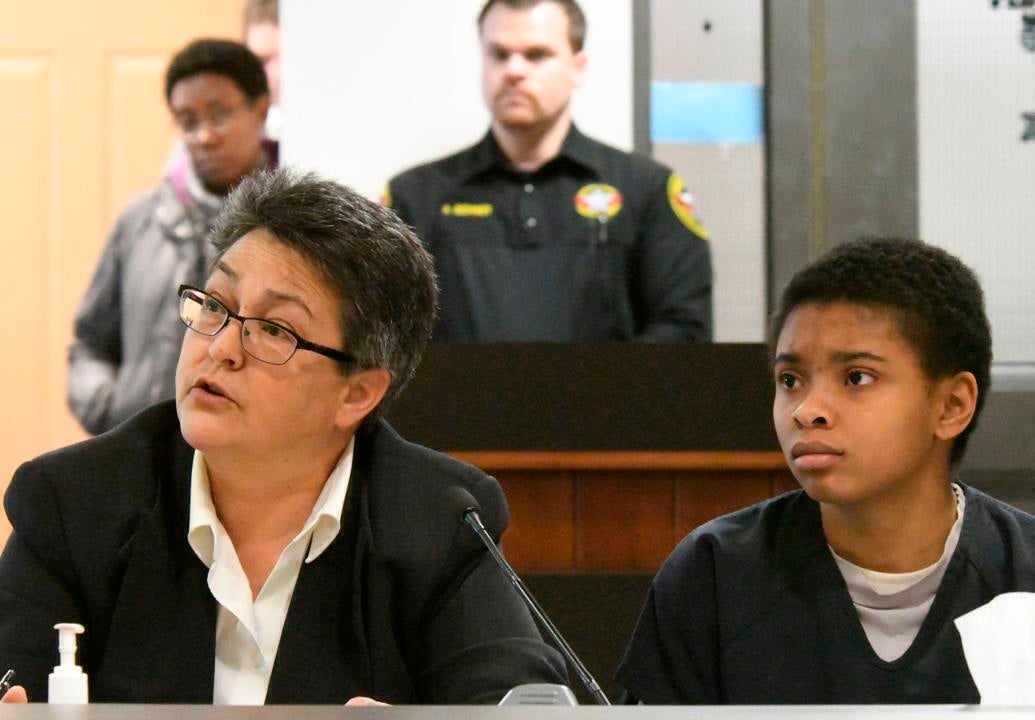Video, transcripts of Wisconsin woman's police interview cannot be used at her trial, judge rules
A judge has ruled that video and transcripts of a police interview with a Wisconsin woman accused of killing a man she alleges was sexually trafficking her cannot be admitted as evidence in her trial

Your support helps us to tell the story
From reproductive rights to climate change to Big Tech, The Independent is on the ground when the story is developing. Whether it's investigating the financials of Elon Musk's pro-Trump PAC or producing our latest documentary, 'The A Word', which shines a light on the American women fighting for reproductive rights, we know how important it is to parse out the facts from the messaging.
At such a critical moment in US history, we need reporters on the ground. Your donation allows us to keep sending journalists to speak to both sides of the story.
The Independent is trusted by Americans across the entire political spectrum. And unlike many other quality news outlets, we choose not to lock Americans out of our reporting and analysis with paywalls. We believe quality journalism should be available to everyone, paid for by those who can afford it.
Your support makes all the difference.Video and transcripts of a police interview with a Wisconsin woman accused of killing a man she alleges was sexually trafficking her cannot be admitted as evidence in her trial, a judge ruled Tuesday.
Using the video and transcript of Chrystul Kizer's 2018 interview with Kenosha police investigators as trial evidence would likely violate the Milwaukee woman's constitutional rights, Kenosha Circuit Court Judge David Wilk ruled, the Kenosha News reported.
The judge granted a request by Kizer's attorneys to suppress the information. In his ruling, Wilk said the court would be “hard pressed” to find that Kizer’s Fifth Amendment right against self-incrimination and Sixth Amendment right to have an attorney present during questioning would be violated if the video and transcript were used.
Kizer faces multiple charges, including arson and first-degree intentional homicide in the June 2018 fatal shooting of Randall Volar. Her trial has not been scheduled.
Kizer's interview with police occurred inside a room in Kenosha's Public Safety Building while she was in custody and had already retained legal representation. Her lawyer was not present for the interview.
One of her attorneys, Helmi Hamad, called the police interview a “horrible thing that occurred.” He said Wilk’s ruling “is a step towards making sure Chrystul gets a fair trial and gets her life back.”
Prosecutors declined to comment after Tuesday’s hearing.
They had argued that the October 2018 video and transcripts could be used at trial because they believe Kizer initiated contact with detectives. They also said she was not under undue influence of law enforcement after writing them a note stating that she would like to speak with them about a homicide case.
Kizer spoke with detectives at length without her legal counsel and was not read her Miranda warnings.
Prosecutors allege that Kizer shot Volar, 34, at his Kenosha home when she was 17, which is old enough to be considered an adult in Wisconsin’s criminal justice system.
Kizer, now 23, contends Volar was trafficking her for sex. She has said that she met Volar on a sex-trafficking website and that he sexually assaulted her and sold her to others for sex.
The Associated Press does not typically identify people who say they are sexual assault victims, but Kizer discussed her case in an interview from jail with The Washington Post that was published in 2019.
According to court documents, Kizer put a gun in her bookbag in June 2018 and told her boyfriend that she was going to shoot Volar because she was tired of him touching her.
She traveled from Milwaukee to Volar’s Kenosha home, shot him in the head, burned down his house and stole his BMW, according to court documents.
Last year, the Wisconsin Supreme Court ruled that Kizer can argue at trial that she was justified in the killing — a ruling that could help define the limits of legal immunity for trafficking victims nationwide.